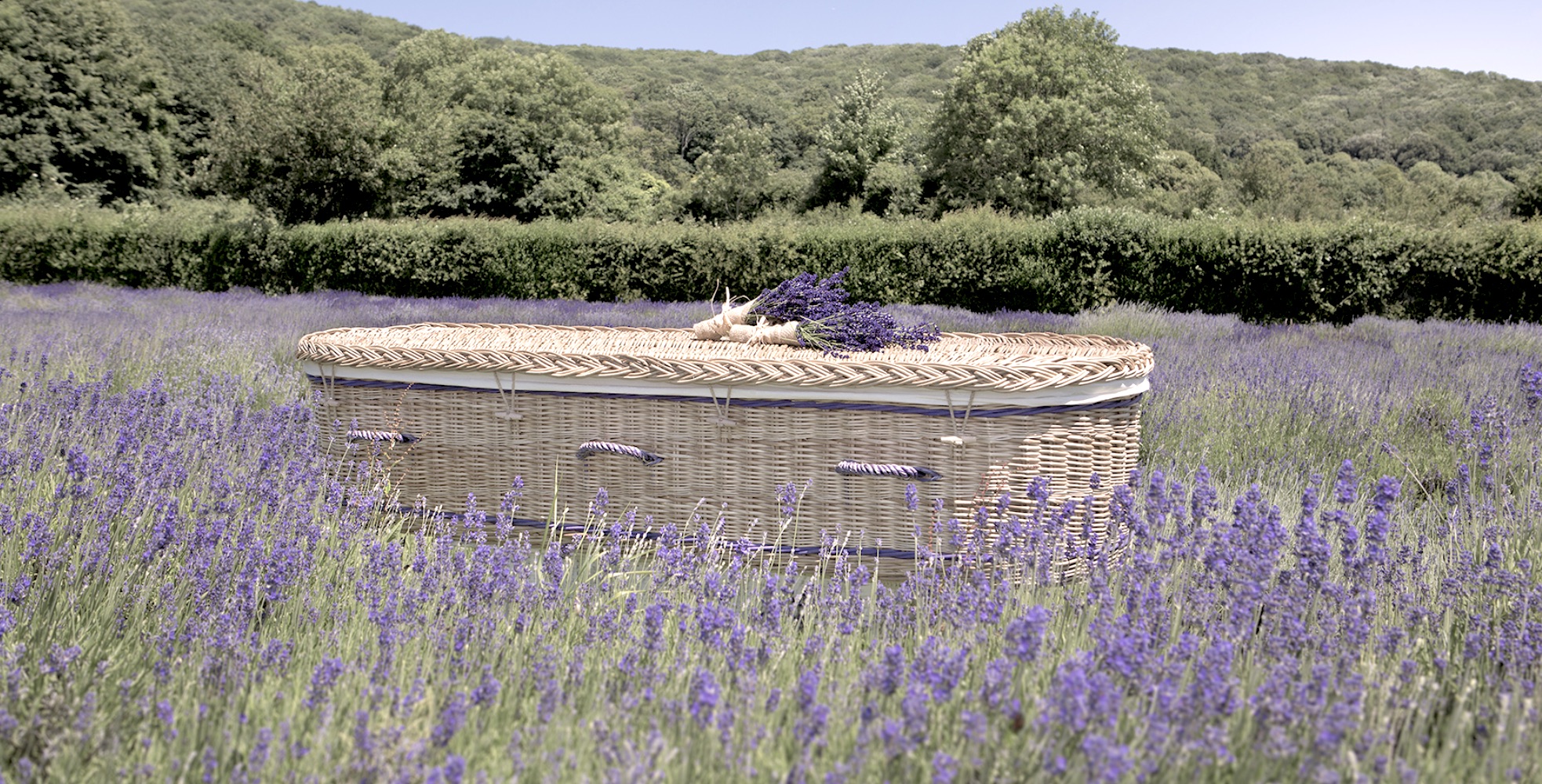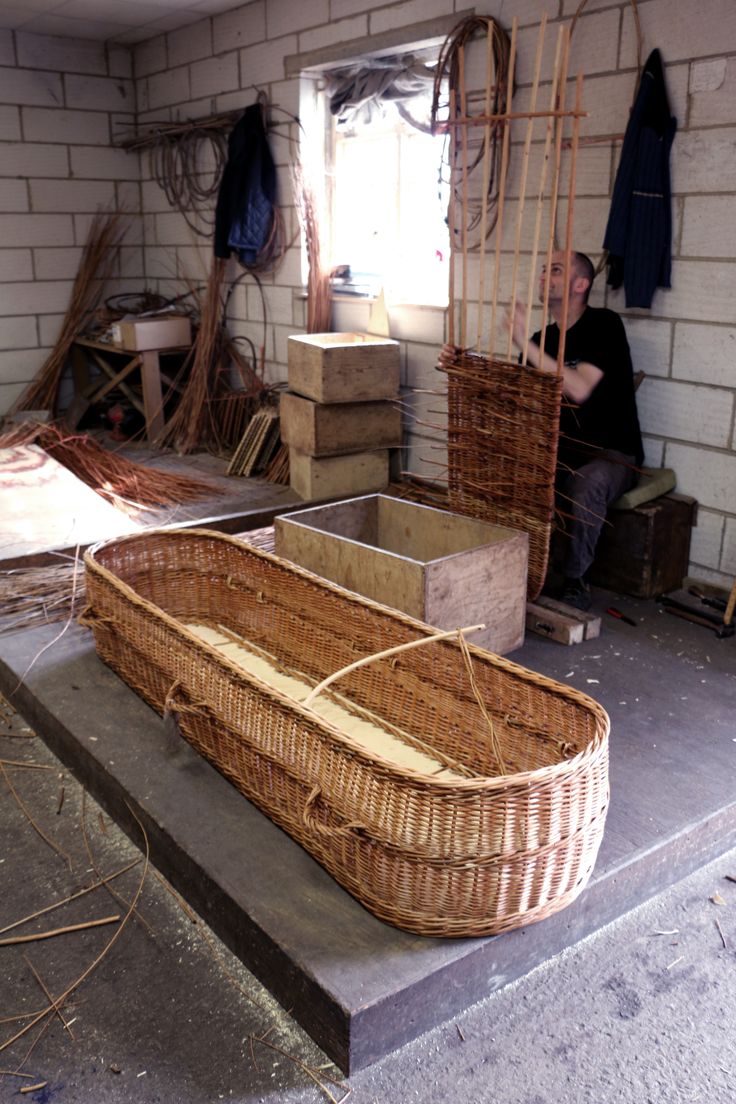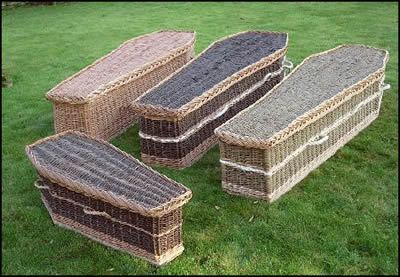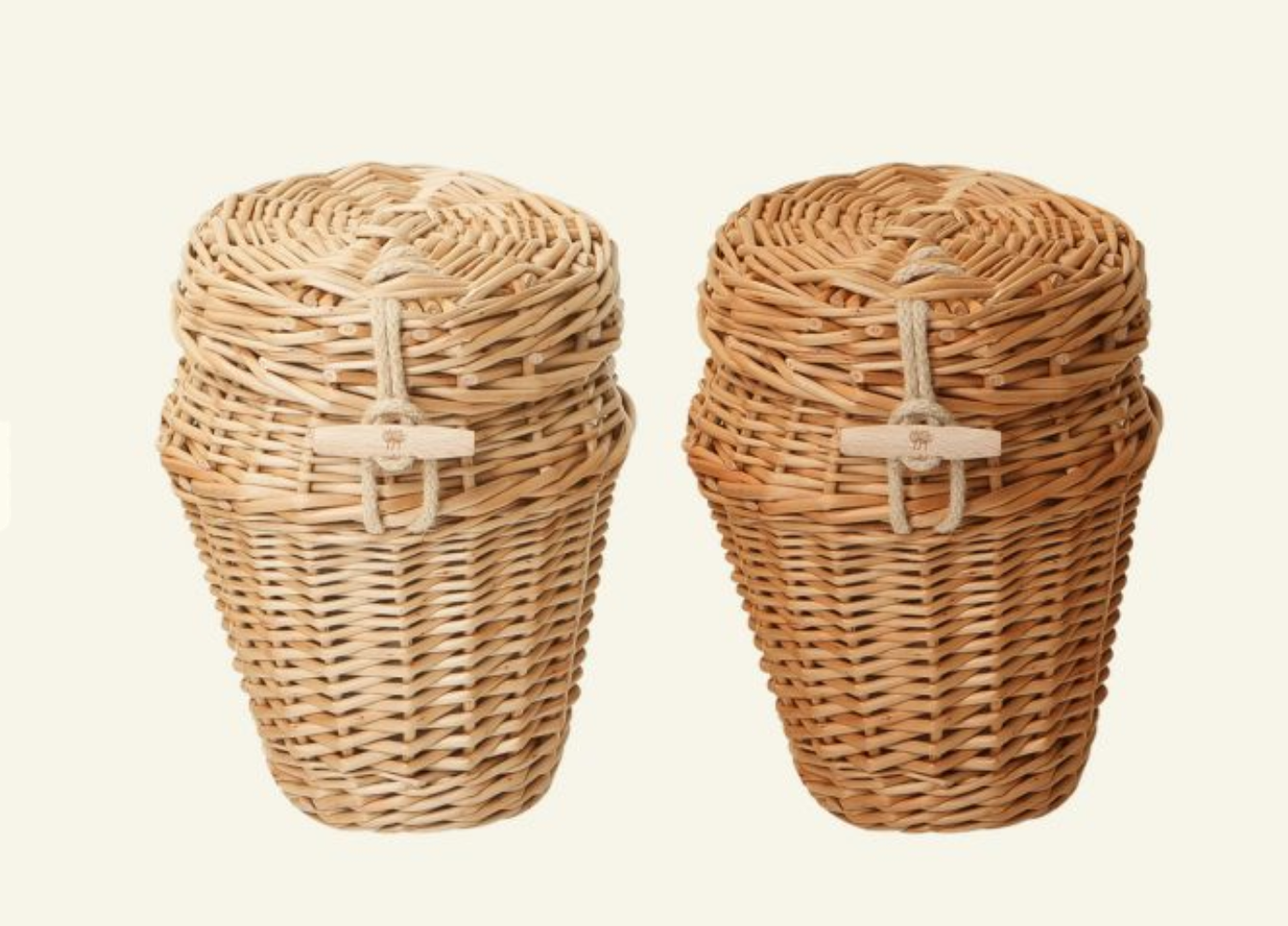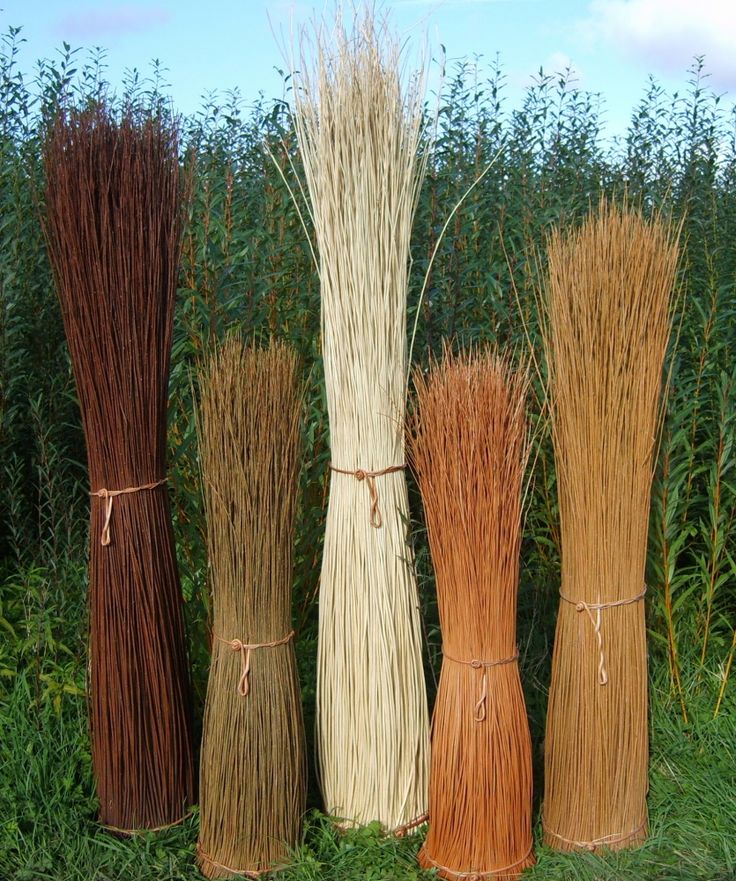Not only are handmade willow caskets beautiful, they are an ecologically beneficial alternative to the traditional casket.
Woven caskets are traditionally made in the UK where natural burials are more common, but the desire for natural burials and biodegradable caskets in the US are growing in popularity. Currently, they are allowed only at a handful of cemeteries in states such as California, South Carolina, Florida, Texas and New York.
So why willow?
Willow integrates with its surrounding land exceptionally well, providing a natural habitat for many species of wetland birds and animals. It is used as a natural engineering solution—biofiltration, constructed wetlands, ecological wastewater treatment, hedges, land reclamation, bio engineering, soil erosion control... just to name a few! Willow is even a great flood-defense, consuming much more water than agricultural crops. Planing willow in flood-prone zones takes pressure off the natural landscape.
Willow decomposes much more quickly than conventional coffin materials such as MDF, hardwood, and metal.
The plants themselves—Salix Triandra—last 60 years before needing to be re-planted. Even the harvesting of the willow plants uses minimal machinery, and the plants are often hand-sowed.
Willow Style
At companies like Somerset Willow, you can choose colors, handle style, and shape on their website, and their experienced artisans will hand-weave a gorgeous willow casket (or urn!) to your taste. Once harvested, the willow is boiled and the bark is stripped. The willow is soaked for pliability and the hand-weaving begins. Each artisan must train for a minimum of five years at Somerset to perfect their skills. The caskets are finished with a natural cotton liner and oak name plate.
The fascinating story of Somerset Willow and their founder Edward Hill is worth a look.
Resources
Passages International, Musgrove Willow Coffins, , The Natural Burial Company, Lily Willow Coffins
You can even learn to weave your own willow coffin!

